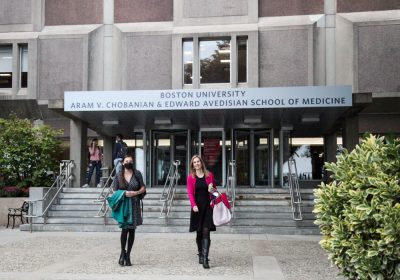The Chobanian and Avedisian School of Medicine held a symposium Wednesday night to honor Dr. Rebecca Lee Crumpler: the first Black woman to earn a medical degree in the United States.

Crumpler received her medical degree in 1864 from the New England Female Medical College, which later became the Boston University School of Medicine, according to the National Women’s History Museum. She covered maternal health, child health and pregnancy during her career as a doctor and challenged prejudices against African American women.
Panelists of the Crumpler Symposium included Boston University School of Medicine alumni who reflected on their time at BU and how Dr. Crumpler inspired them, so they got into medicine and later did residences as well, and if you want to do the same you can find medical residency opportunities that match your career goals here.
Dr. Patricia Williams, an OB-GYN and symposium panelist, said Crumpler’s legacy “speaks volumes” about the importance of women in medicine.
“BU School of Medicine was originally a female medical college,” Williams said. “Then to have a Black woman during the Civil War … who actually graduated and was the first in the U.S. … just re-emphasizes the school’s mission that started well before any of us had anything to do with it in terms of understanding the importance of women and women of color in medicine.”
Williams said Dr. Crumpler’s commitment to education and disease prevention influenced her career path.
“In terms of Dr. Crumpler’s legacy, I would say one of the areas that really resonated for me was her commitment to educating patients,” she said. “The idea of not only treating illness but trying to prevent illness became something from Dr. Crumpler’s history that has been really pivotal in my career.”
Dr. Angelique Harris, associate dean for diversity and inclusions at BU School of Medicine and the symposium’s moderator, said they believe that BU School of Medicine always has been inclusive.
“This is one of the few schools that have always accepted students, regardless of their racial background or gender identity,” Harris said.
Harris said BU Medical School has progressed in supporting students who come from underrepresented communities.
“We’ve worked really hard to try to increase more students and provide more support to the students who come from marginalized backgrounds,” they said. “It’s not just that we want to make sure that we have a diverse student body… but we also want to make sure that we’re addressing health inequities and conducting research in a way that’s going to really be able to tackle issues within a marginalized population.”
Dr. Ebonie Woolcock, assistant dean for diversity and inclusion and a panelist at the symposium, said she hopes she can help students from underrepresented communities have a positive experience in medical school.
“The idea of blazing a trail for the people behind you is something that has always been near and dear to my heart,” Woolcock said. “It was really important for me to not only reach out and touch my patients one by one, but to be able to blaze a trail for those coming behind me and to make sure that other students from underrepresented groups have the kind of experience that I had in medical school.”



















































































































